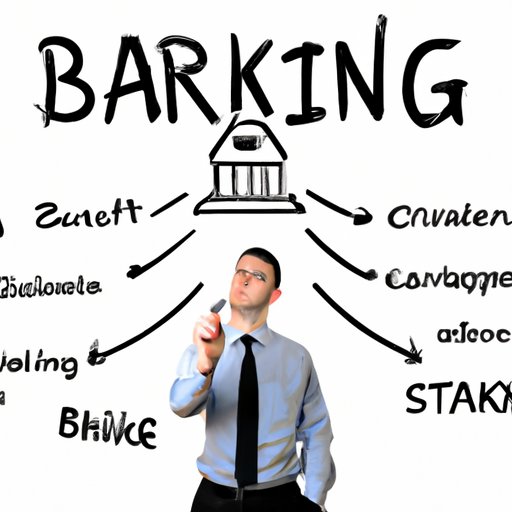Introduction
A banker is a financial professional who works with individuals and businesses to provide banking services such as loans, investments and deposits. Banking is an important part of the economy, and bankers play a vital role in helping customers manage their finances. Becoming a banker requires a certain level of education and training, as well as strong personal and professional skills.
Education and Training Requirements for Becoming a Banker
To become a banker, you must first meet the educational requirements. Most banks require applicants to have at least a bachelor’s degree in finance, accounting, economics or a related field. A master’s degree may be preferred for more senior positions. In addition to a degree, you may need to pass a licensing exam or obtain a professional certification from a recognized organization.
The licensing exam is typically administered by the state in which you plan to work. It covers topics such as banking regulations, investment principles and risk management. Professional certifications, such as Certified Financial Planner (CFP) or Chartered Financial Analyst (CFA), are voluntary but can give you an edge in the job market. These certifications demonstrate your commitment to the profession and your knowledge of the industry.
Day-to-Day Duties of Bankers
As a banker, you will be responsible for providing financial products and services to customers. This includes setting up accounts, issuing loans, providing advice on investments and managing customer portfolios. You will also be responsible for ensuring that all banking transactions comply with applicable laws and regulations.
In addition, you will need to provide excellent customer service. You should be able to answer questions about banking products and services, address customer complaints and resolve disputes. Your ability to build relationships with clients and maintain their trust is essential to success in this field.
Types of Banking Careers
There are many types of banking careers available. Commercial banking involves working with businesses to provide financial services such as loans, credit lines and treasury management. Investment banking involves helping companies raise capital by issuing stocks and bonds. Private banking involves providing personalized banking services to high net worth individuals.
Required Skills, Knowledge and Abilities to Succeed as a Banker
To be successful as a banker, you will need strong communication, problem solving and time management skills. You should also have a thorough understanding of banking policies, procedures and regulations. Additionally, you should have a good grasp of financial markets and be familiar with various types of investments.

Advice on How to Excel in the Banking Industry
To excel in the banking industry, it is important to network with other professionals and build your reputation. You should also stay up to date with market trends and new products and services. Finally, it is important to stay organized and prioritize tasks to ensure that deadlines are met.
Conclusion
Becoming a banker is a rewarding career choice. With the right education, training and skills, you can make a difference in the lives of customers and help them reach their financial goals. If you are interested in pursuing a career in banking, take the time to learn the necessary requirements and develop the skills and knowledge needed for success.
(Note: Is this article not meeting your expectations? Do you have knowledge or insights to share? Unlock new opportunities and expand your reach by joining our authors team. Click Registration to join us and share your expertise with our readers.)
